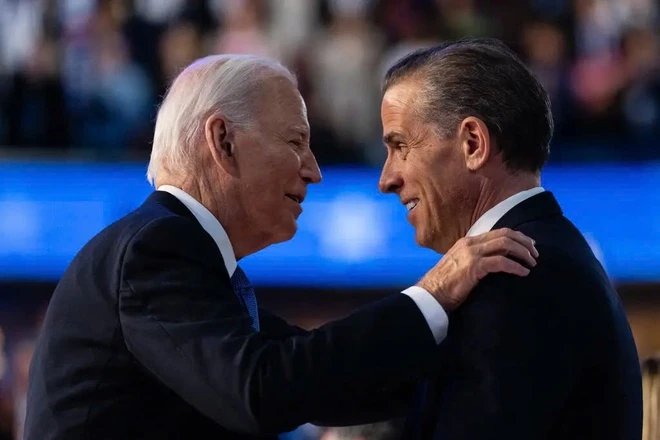In a move that has sent shockwaves through Washington and beyond, President Joe Biden publicly accused former President Donald Trump and billionaire entrepreneur Elon Musk of orchestrating a covert alliance aimed at dismantling the United States’ social security system. The unprecedented accusation marks a critical turning point in the ongoing political power struggle leading up to the next presidential election. Biden’s claims not only challenge the political integrity of Trump but also place Musk—the influential CEO of Tesla, SpaceX, and X (formerly Twitter)—under intense scrutiny for his growing role in shaping national policy through financial and technological influence.
**The ‘Trump-Musk Alliance’: Fact or Political Theater?**
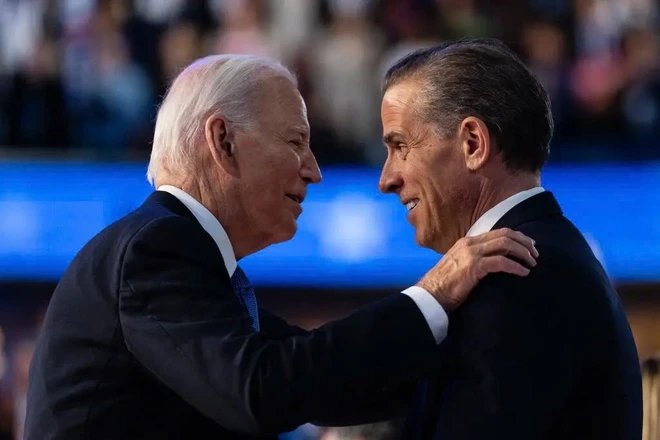
While Biden’s accusation sounds dramatic, it’s rooted in growing concerns among Democrats and some independent watchdogs that Elon Musk’s close relationships with right-wing figures, including Trump, could have long-term implications for American governance. Musk’s increasing presence in political discourse—especially through X, where conservative viewpoints are amplified—has aligned him more with Trump-era policies.
Trump, on the other hand, has welcomed tech moguls into his political circle, seeing them as both economic assets and ideological allies. Biden’s team alleges that behind closed doors, Trump and Musk have been coordinating on economic strategies that prioritize corporate interests over public welfare. At the heart of this concern is a fear that the Social Security program—designed to protect the financial future of elderly and disabled Americans—could be sacrificed in favor of privatization, tax cuts for the wealthy, and deregulation.
**Biden’s Speech: Sounding the Alarm**
During a fiery speech in Philadelphia, Biden didn’t hold back. “The American people have worked hard for their Social Security benefits. Now, we face a new threat—an unholy alliance between Donald Trump and Elon Musk that wants to tear down decades of progress,” he warned.
Biden’s tone was urgent, portraying Trump and Musk as representatives of a broader movement to undercut social safety nets. He pointed to proposals from Trump’s allies that suggest raising the retirement age, cutting benefits, or even transitioning to private accounts tied to the stock market—initiatives that, according to Biden, risk the stability of millions of Americans’ futures.
**Social Security Under Threat: Examining the Evidence**
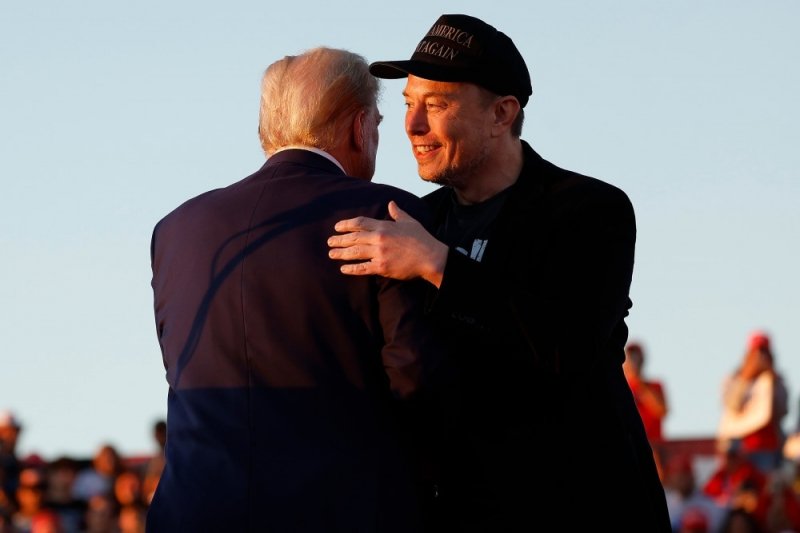
To support his claim, Biden cited a number of policy proposals and backdoor meetings between tech executives and Trump-aligned legislators. Reports have surfaced of quiet discussions within conservative think tanks about privatizing parts of the Social Security system—conversations in which Musk’s name appears frequently as a supporter of free-market reforms.
Additionally, Musk has publicly criticized government spending and entitlement programs, often arguing that they are unsustainable in the long term. Though he has not explicitly called for abolishing Social Security, critics argue that his influence over political figures like Trump makes his economic philosophy a potential danger to the system.
**Elon Musk Responds: A Disruption or a Denial?**
In typical fashion, Elon Musk responded swiftly via X. “Ridiculous. I have no interest in social security politics. My focus is innovation, not Washington theater,” he posted. Musk went on to criticize what he called “fear-mongering politics” and accused Biden of weaponizing public sentiment for political gain.
Despite Musk’s denial, analysts remain wary. His ventures—such as Starlink’s expanding military applications and X’s role in political communication—suggest he’s no longer just a businessman. Many believe his influence extends far into policy development, particularly in a political climate where billionaires are often consulted more than elected officials.
**Trump’s Silence and Strategic Calculations**
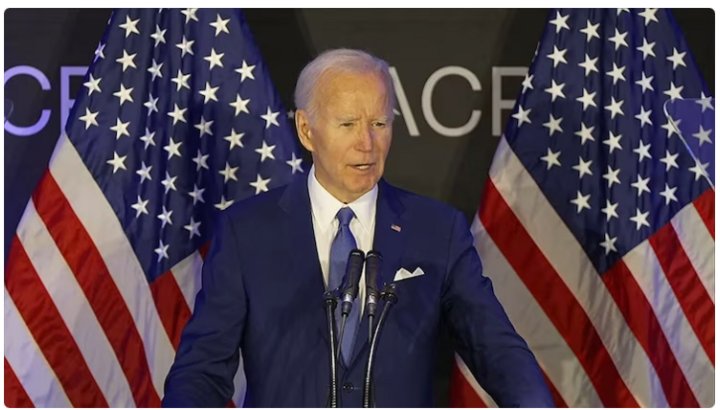
Notably, Trump has remained silent on the accusation—an unusual move for a man known for his combative public persona. Analysts believe this silence is strategic. Trump is trying to court both traditional conservatives and Musk’s younger, tech-savvy followers. Any comment now could risk alienating either group.
However, in leaked campaign memos, Trump’s team has hinted at the need for “entitlement reform,” a euphemism often used when discussing changes to Social Security and Medicare. These reforms could include raising eligibility ages or reducing benefits—measures that would align with Musk’s fiscal philosophies.
**Public Reaction: Fear, Confusion, and Mobilization**
The reaction among the American public has been mixed. Senior citizens’ advocacy groups have expressed deep concern, with some launching awareness campaigns urging Congress to “protect what we’ve earned.” Millennials and Gen Z, meanwhile, are reacting with growing disillusionment, already skeptical about whether Social Security will exist by the time they retire.
Protests have emerged in key swing states like Florida, Pennsylvania, and Arizona, where retirees form a significant portion of the voting bloc. Biden’s campaign appears to be leveraging these protests, positioning the defense of Social Security as a moral obligation rather than just a policy debate.
**Economic Consequences: Markets on Edge**
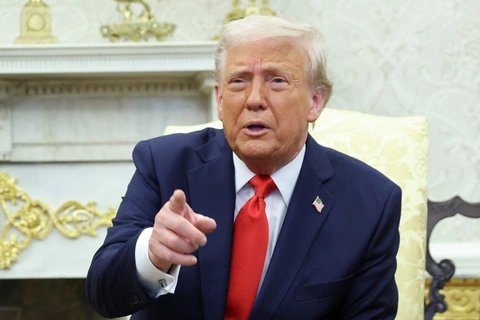
Wall Street has also reacted cautiously to the growing tension. While investors typically support deregulation, many see the undermining of Social Security as a destabilizing force. Consumer confidence has dipped slightly, and financial analysts warn that any major reforms to the entitlement system could have ripple effects on the housing market, healthcare sector, and private retirement planning.
Furthermore, the bond market—which depends heavily on the predictability of government spending—has shown minor fluctuations as traders reassess long-term outlooks. If Social Security is significantly altered, it could impact not just individual Americans but the global perception of U.S. fiscal responsibility.
**Political Motives or Genuine Concern?**
Critics argue that Biden’s accusation is a political maneuver designed to rally his base ahead of the upcoming election. By painting Trump and Musk as enemies of the common man, Biden strengthens his narrative of fighting for the average American. But even skeptics admit that concerns over Social Security are not new—and that growing billionaire influence in politics demands more scrutiny.
Biden’s administration is also under pressure to address the solvency crisis facing Social Security, projected to face funding shortfalls in the next decade. By shifting the focus to a perceived Trump-Musk threat, Biden might be diverting attention from his own party’s lack of comprehensive solutions.
**The Future of Social Security: Uncertain and Contentious**
At the heart of the debate lies a single, troubling question: Is Social Security safe? Both political camps offer different visions. Biden insists on preserving and expanding it. Trump’s allies, emboldened by Musk’s economic ideals, appear more interested in reform—possibly at the expense of the current system.
What’s clear is that Social Security will be one of the defining issues of the next election cycle. With American families relying on it as a lifeline, any perceived threat—real or exaggerated—will become political dynamite.
**Conclusion: A Battle for the Soul of America’s Safety Net**
As Biden continues to ring alarm bells over a supposed Trump-Musk alliance, the nation watches closely. Is this a genuine call to protect the public good, or a strategic ploy in an increasingly polarized political arena?
Regardless of motive, one thing is certain: The intersection of politics, wealth, and technology is reshaping the conversation around America’s most vital social programs. With trust in institutions at an all-time low and inequality on the rise, the fate of Social Security may ultimately reflect the broader question of who really holds power in modern America—and whether that power serves the people or the privileged.
